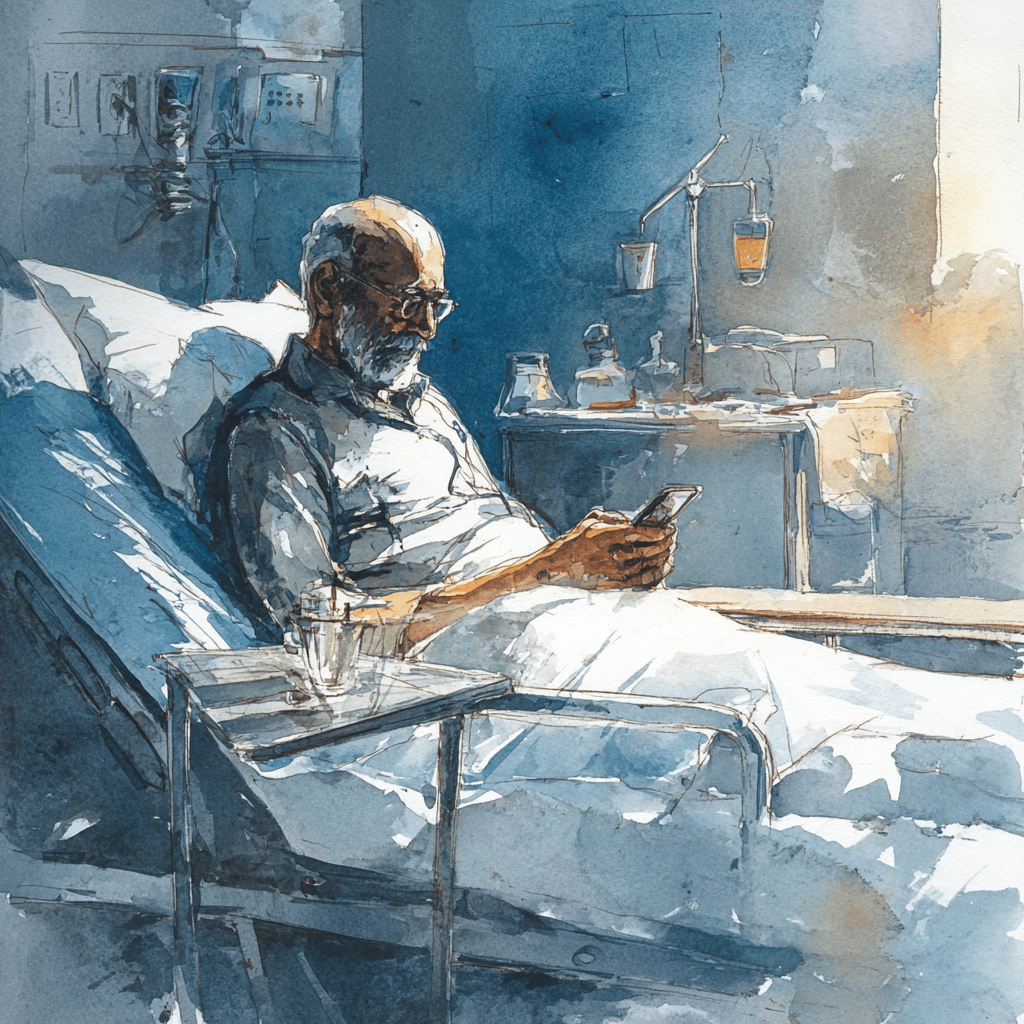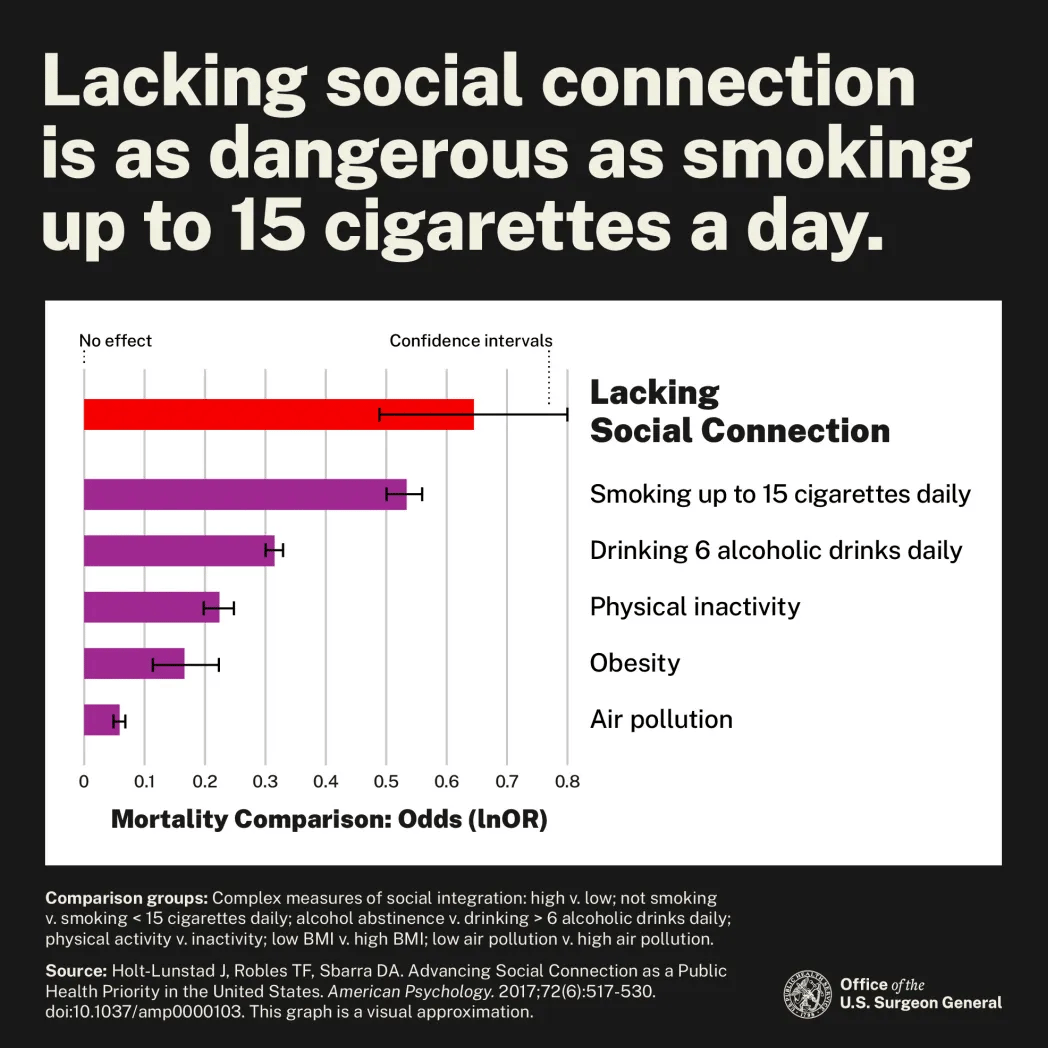- The Reboot
- Posts
- The Unspoken Consequences of Scrolling
The Unspoken Consequences of Scrolling
Welcome to the 49 new readers who have joined us since last week! If you haven’t subscribed, join 2500+ smart, curious folks by subscribing here:
1) Kanso’s phone-free event series, Here & Now, will be back in NYC on August 19th. 40+ ambitious people gathering together to lock away their phones, build deeper relationships, and be fully present for the first time in a long time. If this sounds like your vibe, RSVP here.
2) Officially crossed 2500 people across the globe who receive + read this newsletter every week. Thank you so much for your support 🙏 — only the beginning.
Got an important topic today…

Most of my days are spent digging to understand the technology shaping our future and then trying to build products that can counteract the darker paths it’s accelerating us down.
Now, this isn’t me saying rapid tech innovation is bad. It’s not. I’m a pro-innovation, tech-nerd to my core. But as someone who gets to see what’s coming, I’d be lying if I said I wasn’t a little frightened.
I’m fairly certain most people realize the precarious position humanity is in, largely driven by three powerful, converging forces.
1) Almost every generation is addicted to their screens. I used to shy away from that word, "addiction," in this context. But after doing more digging, it's the only fitting term. Addiction isn't a binary state; it’s a spectrum. And almost everyone I've met, myself included, has an unhealthy dependence on their technology that falls somewhere along that line. We're battling applications and devices designed by armies of developers with nearly endless resources, all engineered to exploit our fundamental human hardwiring. Hardware form factors will soon get smaller and more immersive. Not an easy fight.
2) The entire human population, especially in the U.S., is facing a loneliness epidemic. All generations are affected, but teens and young adults are spending far less time with friends than ever before. This creates a destructive feedback loop: loneliness pushes people toward compulsive screen use, offering a false sense of connection, which in turn leads to more loneliness as real-world interactions dwindle. Or, depending on the person, that cycle can reverse, with excessive screen time leading to isolation that feeds the need for more digital distraction.
According to the American Perspectives Survey, the percentage of U.S. adults who report having no close friends has quadrupled to 12% since 1990, while the percentage of those with ten or more close friends has fallen by nearly threefold. The foundations of the crisis were laid long before lockdowns. For decades, Americans consistently spent about 6.5 hours a week with friends. Then, between 2014 and 2019, that number plummeted to just four hours per week.
3) AI is evolving at a breakneck disgustingly insane pace. Far faster than any previous technological innovation, and it’s damn near impossible for regulation to keep up. More people are gravitating towards AI-based social companions, AI therapists, or frontier LLMs for comfort and convenience's sake, plus the fact that the near instant output of AI tools plays nice with our already fried dopamine receptors.
Many products that can be made but probably shouldn’t be are being shipped out as cash grabs, instead of considering the broad range of long-term consequences they can have on their users.
Despite all this, yes, I am still bullish on where technology will take the world. But, only if we can get very intentional about how to build guardrails into our daily lives. That means treating our relationship with technology not as a productivity problem to solve, but as a core pillar of our overall well-being.
Most people still view their tech habits through the lens of efficiency:
If I could only free up more time, I would get more done.
But this approach misses the forest for the trees.
Poor tech habits not only steal time away from more productive pursuits. They are likely silently subtracting years from your life.
Every time you reach for your phone, there’s a physiological cost:
Blue light exposure (especially at night) disrupts circadian rhythms by suppressing melatonin production, throwing off your body’s natural circadian rhythm, and leading to less restorative sleep. Read Why We Sleep and you’ll understand very quickly how poor sleep can mess up the rest of your life.
Consuming ‘stressful’ content elevates your heart rate, increases cortisol levels, and keeps your sympathetic nervous system in overdrive. Chronic stress alters immune function, increases systemic inflammation, accelerates cellular aging, and impairs cardiovascular health. Over time, this background stress profile contributes to a higher incidence of hypertension, gastrointestinal issues, sleep disorders, and mood dysregulation.
Continuously opting to stay in and chat with your AI friend vs grabbing a few drinks with your colleagues will atrophy your social skills and eventually lead to chronic loneliness. In one study, people who experienced social isolation had a 32% higher risk of dying early from any cause compared with those who weren’t socially isolated.

shared this before, but relevant here too
As more data emerges on the physiological toll of our digital habits, it will become harder to treat digital wellness as a side note. The siloed approach won’t hold.
We don’t separate air quality from respiratory health, or diet from heart disease. Our relationship with technology deserves the same integration into how we think about wellness, because it affects everything.
I’m fairly confident this shift won’t come from another productivity app or another mindfulness subscription, but rather a cultural recalibration and understanding that the way we use technology affects not just how we work, but how we feel, age, parent, and connect.
Carving out periods of tech-free time and meaningful, offline living must be a public health imperative, especially for younger generations, who are developing neural wiring and behavioral norms in environments saturated with screens, endless dopamine hits, and synthetic social interaction.
With every new frontier LLM update, the importance of building Kanso expands by an order of magnitude and the urgency to act becomes harder to ignore.
My goal for these essays is to inspire action to be more mindful of these factors in your own life and recognize that small, consistent shifts in your relationship with technology can fundamentally change how you feel, think, and connect.
In a few weeks, I’ll be formally announcing our first 24 Hours Offline Challenge. It’s completely free + the title says it all.
If you’re interested in joining, just reply to this email and I’ll get you the info.
Until next time,
Randy
If you’re looking to improve your digital wellness, here are a few places to start:
Kanso Experiences - Unforgettable phone-free social experiences for ambitious people who are tired of the feed and hungry for real relationships.
Kanso Reset45 Cohorts - A cohort-based bootcamp to reprogram your tech habits in 45 days. If you’re interested in joining, reply to this email.
Kanso 1:1 Digital Wellness Accountability Coaching - For those who need high-touch, personalized support and daily ongoing accountability.
The Digital Reset Journal - The first journal designed to help you build a healthier relationship with tech
Digital Detox Tools - A free directory of 100+ digital wellness tools to integrate into all areas of your life.
Follow me across platforms:
You can find Kanso across Instagram and TikTok @unplugwithkanso too.
That’s all for this week. Now stop scrolling, and go do something great.
— Randy